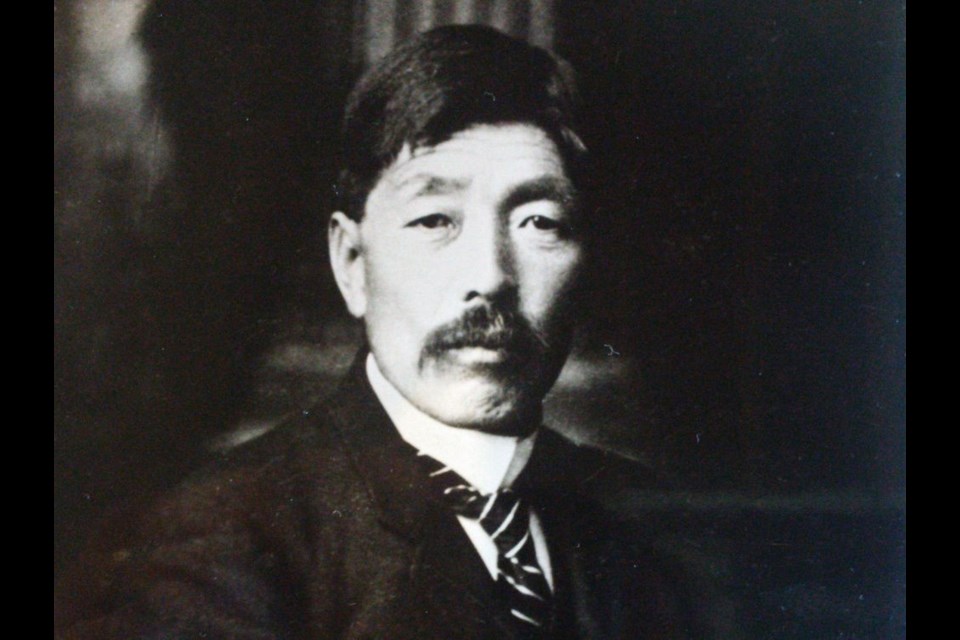Tomey Homma proved over a century ago that even in defeat, one could inspire future change.
It was in 1900 that Tomekichi “Tomey” Homma, a naturalized Japanese Canadian, applied to have his name put on the official voters list in the Vancouver electoral district. He did so even though just five years earlier an amendment to the British Columbia Provincial Election Act had disqualified Japanese Canadians, Chinese Canadians and First Nations people from voting.
Homma was an educated man who knew his request would be denied and subsequently sued the voting registrar, Thomas Cunningham.
Both the Vancouver County Court and the Supreme Court of B.C. ultimately ruled in favour of Homma; however the provincial government refused to accept these decisions. Led by Premier James Dunsmuir, the government appealed to London’s Judicial Committee of the Privy Council, which at the time was the highest court of appeal in the British Empire.
The Privy Council ultimately overturned the previous decisions, ruling that the province had jurisdiction over civil rights and therefore could discriminate against someone based on their place of birth.
Equal voting rights for all Canadians was only achieved in 1960. Unfortunately, Homma did not live to see this come to fruition. He died on Oct. 18, 1945 at the Popoff relocation camp where he was interned during the Second World War.
This past Sunday, Dec. 10, a plaque commemorating Homma and his landmark legal case against Cunningham as a historic Canadian event was unveiled at the Nikkei National Museum and Cultural Centre in Burnaby.
Andrea Geiger, an associate professor in the history department at SFU, wrote about the Cunningham v. Homma legal case in her book,Subverting Exclusion Transpacific Encounters with Race, Caste, and Borders, 1885-1928, and spoke at the event.
“What makes Cunningham versus Homma deserving of note here today, however, isn’t the poverty of the Privy Council’s reasoning,” Geiger said, “but Tomekichi Homma’s remarkable courage in challenging a profoundly unjust law in the face of intense opposition both from within and without his own community.”
Geiger discovered that the British Privy Council could not find any precedent in Canada, or other commonwealth nation, to draw a conclusion from.
“The Privy Council instead reached south across the U.S. border and back in time to a source of law it normally would not have considered binding or even persuasive — an outdated edition of a U.S. legal treatise published during the Civil War interpreting a clause of the U.S. Constitution.
“Brushing aside the fundamental differences in the constitutional structure of Canada and the United States, the Privy Council extracted a sentence from the treatise, taking it out of context and using it as the only direct precedent cited for its conclusion that the reference to political rights in Canada’s Naturalization Act did not necessarily entitle naturalized citizens to vote in any given Canadian province.”
Grace Eiko Thomson, the past president of the National Association of Japanese Canadians, said that the complicated history of Japanese Canadian’s was a struggle.
“The B.C. government, at that time, was incredibly racist,” Thomson said. “They had a ‘they’re beneath us’ kind of attitude.”
Tenney Homma spoke at the event about how welcoming and loving her grandfather was.
“Tomey also enforced to his children equality and freedom for all,” Tenny Homma said. “He encouraged them to develop a desire to help others, to be kind and compassionate.”
ncvalka@gmail.com



